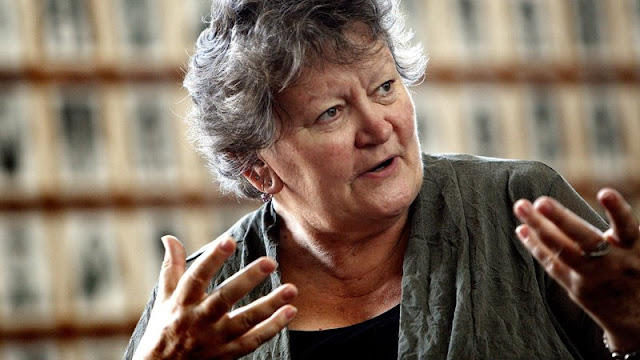Celia: DVD Review
"We ignore the yearning of our spirit."
These words, coupled with Harry Dean Stanton's "I'm scared", sum up the general feeling of many on their deathbeds, but often go ignored or long buried.
Such it is with director Amanda Millar's Celia, a documentary about the impassioned social advocate Celia Lashlie, known more colloquially as Ces to her friends.
And yet, despite some powerful touches within, Celia feels a little too drawn out to achieve the power it desperately wants - even though it is really a rallying cry for a change.
Some of the problem with Celia is that it assumes you know Celia Lashlie before you go in; and therefore fails as a doco in general about her for the uneducated masses - how would a foreign audience see this subject is one niggle worth pondering on viewing and after.
Even though it's well-shot and the director's got the best of the single 90 minute interview she was able to achieve before life cruelly intervened and Celia Lashlie died, the film feels a little eclipsed by its own archive material and by its subject itself.
Stripped of too much of Celia's back story (one suspects further interviews could have added a lot more), the film relies a lot on the facts it deals with over social injustices in New Zealand, the mothers' place to raise children and prevent future criminals and an intriguingly didactic news doco.
Complete with shocking stats on a darkened background while slow mo reenactments follow after, the style of the doco is primarily one which feels suited to a TV news expose, rather than a fuller portrait of what the woman involved was.
It also relies way too much on nature shots for segues, and feels a little strung out in parts as the pieces are tied together.
And yet, when it uses the right material from the one 90 minute interview Millar got combined with archive footage, it shines fiercely and brightly; a towering beacon lit under our collective asses thanks to Lashlie's no prisoners taken approach to the truths society is sometimes too cowardly to face.
But there's humility in Celia's courage in the face of death and, much like Stanton's simply delivered line "I'm scared" in Lucky, her regrets so late in the day hit a level of poignancy that are powerful and undeniable.
Even through it all, Celia's humanity and the simplicity of her universal struggle is deeply affecting - Millar manages to capture that via moments of honesty rarely committed to screen and by non-intrusive interviewing.
Celia could be a useful as a change piece for government agencies and those looking to educate, as was Celia's vision for the film - an extension of her crusading work inside and outside the system.
Yet one can't help but side with the film commission and TV execs who advised doing it differently, even though I'm not privy to those discussions or director Amanda Millar's desire not to do so. (She divulged these early on in the pre-presentation of the film.)
One suspects, given the fullness of the auditorium and the fact extra screenings have been put on, Celia will find a life that it needs to - though potentially, its best life lies not on the big screen, but rather within the smaller screen within institutions.
Lashlie herself says near the end "If you're standing at my funeral, then my work is done" - and given the attendance at the festival, one quite easily can attest - and agree - to such thoughts.
But on reflection, Celia could have used an expeditious edit in parts, a trimming of some of the obvious stylings which become a narrative crutch.
It should also be said that a little more context to her own past and life would have fulfilled many of the questions foreigners may have.
Celia will have a life as a teaching document, but as a wider piece of cinema, a documentary to inform, it is unfortunately wanting - even though in parts, it easily and powerfully confers Celia Lashlie's ideals and attitudes for change.




%20&%20Edith%20Poor%20(Lizzie%20Moyle)_%C2%A9BBCS%20&%20Bunya%20Entertainment.jpg)
No comments:
Post a Comment